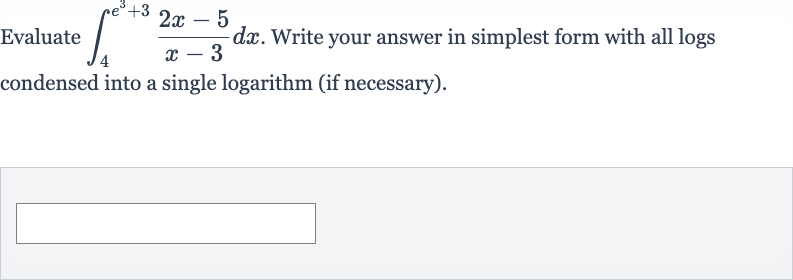Full solution
Q. Evaluate . Write your answer in simplest form with all logs condensed into a single logarithm (if necessary).
- Perform Long Division: We have the integral:First, we will perform long division on the integrand to simplify the expression. can be divided to get with a remainder of :So, Now, we can rewrite the integral as:
- Separate into Simpler Integrals: Next, we separate the integral into two simpler integrals: Now we can integrate each term separately. The integral of a constant is just the constant times the variable, and the integral of is the natural logarithm of the absolute value of . So we have: evaluated from to .
- Evaluate Antiderivative at Limits: Now we evaluate the antiderivative at the upper and lower limits of integration: Simplify the expressions:Since (because is positive, we don't need the absolute value) and , we get:
- Perform Subtraction: Now we perform the subtraction:= This is the value of the definite integral.

